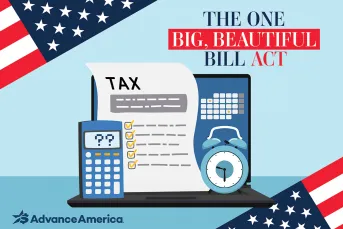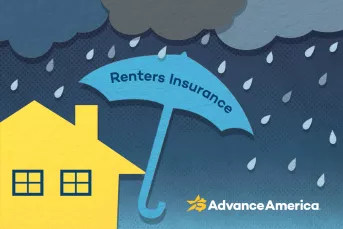
Gig Economy Explainer: Definition, Advantages and Challenges
Tired of the 9-to-5 grind? You’re not alone. The number of people choosing the flexibility and independence of gig work represents 38% of the U.S. workforce, according to Upwork.
Whether you're thinking about leaving the traditional workforce or already juggling multiple gigs, it’s important to understand both the perks and the pitfalls. Learn about what the gig economy really is, the financial realities that come with it, and whether it’s a smart fit for your lifestyle and long-term goals!
What is the gig economy?
The gig economy is a labor market that is characterized by flexible, short-term ways of working that’s changing how people earn money.
‘Gig economy’ refers to work where short-term contracts, freelance work, and temporary positions replace or add to traditional full-time jobs.
Individuals, or gig workers, are typically hired to complete specific tasks, “gigs,” or projects, rather than working under one employer long-term. Whether it’s delivering food, driving for a rideshare company, freelancing online, or offering services on demand, gig workers are reshaping the modern workforce.
Technology has been a major driver of the gig economy’s growth. Apps like Uber, Lyft, DoorDash, Fiverr, Upwork, and Taskrabbit make it easy for people to connect with customers, find work, and get paid.
But while freedom is appealing to many, including myself, this type of work also comes with uncertainty. So, you’ll need to factor that in before making the decision to join the gig economy.
➢RELATED: 15 Legit Work From Home Jobs
Legitimate gig economy jobs
The gig economy covers all kinds of jobs, from low-skill side hustles to high-paying freelance work. Some of the most common gigs include:
- 🚗 Ridesharing (Uber, Lyft)
- 🥡 Food and grocery delivery (DoorDash, Uber Eats, Instacart)
- 🧑💻 Freelance writers, designers, developers (Fiverr, Upwork)
- 💻 Virtual assistants or remote customer service reps
- 🛠️ Handypeople or cleaners (TaskRabbit, Handy)
- 🧑🏫 Online tutors or language instructors
- 📱Content creators (YouTube, TikTok)
- 🏠 Rental hosts (Airbnb, VRBO)
- 🦮 Dog walking and sitting (Rover, Wag)
Some workers even combine multiple gig platforms to create a full-time income. They’ll simply switch between delivery apps, freelance work, and service-based tasks to stay busy and boost their earnings.
➢RELATED: 9 Pet Side Hustles for Animal Lovers
Advantages of the gig economy
The gig economy isn’t just about earning money. It’s about earning it on your terms. From flexible hours to diverse income opportunities, gig work offers unique advantages that appeal to people looking for more control over how, when, and where they work.
📆 Flexibility
One of the biggest reasons people turn to gig work is the flexibility it offers. Want to take Tuesday off? In most gig roles, you can choose when and how much you want to work, which is my favorite part.
For parents, students, or people juggling multiple responsibilities, that level of control is crucial. You're not locked into a fixed schedule or location, which allows for better work-life balance.
😎 Freedom
In the gig economy, you’re essentially your own boss. You decide what gigs to take, how to do them, and when to walk away. That kind of autonomy is rare in traditional employment, where rules, managers, and corporate structures often dictate your every move.
Gig workers often find this independence empowering. This is especially true when they have the skills and experience to command higher rates or build a client base.
🤹♂️ Variety
Gig work often brings variety and a break from routine. Instead of doing the same tasks every day, gig workers usually have different projects, with different people, in different locations. I love this because I feel like I wasn’t meant to be doing the same thing every single day.
For some, this keeps the work engaging and fresh. It’s also a great way to explore new industries or gain experience in different fields without committing to a full-time job.
💵 Income potential
While gig work doesn’t offer a guaranteed paycheck, it can be a financially rewarding experience. Some people take on multiple gigs to diversify their income, while others turn freelance work into a full-time self-employment venture.
Skilled professionals (like writers, designers, developers, and consultants) can post premium rates through platforms like Upwork or by building their own client base. That said, consistent income often requires strategic planning and strong time management.
Six in 10 consumers report earning their income primarily outside of a fixed salary, according to a new report on paycheck-to-paycheck living.
Challenges gig workers face
While gig work offers freedom and flexibility, it also comes with a unique set of challenges that can make financial stability harder to achieve. These hurdles are important to consider before diving in.
💸 Lack of steady income
The biggest downside of the gig economy is its unpredictability. Gig workers often receive inconsistent paychecks, and their earnings can fluctuate based on factors such as demand, seasonality, location, or even changes in platform algorithms. I’ve experienced this myself, and it can be discouraging at times!
One month might be booming, while the next is bone dry. This inconsistency can make budgeting difficult and leave many gig workers living paycheck to paycheck.
➢RELATED: How to Stop Living Paycheck to Paycheck
🩺 Lack of benefits
Traditional full-time jobs often come with perks like health insurance, paid vacation, retirement plans, and parental leave. Gig work? Not so.
As an independent contractor, you're on your own when it comes to securing and paying for these essentials. It can get expensive depending on your health and selected plan, as I’ve found out. That lack of a safety net can put gig workers in a vulnerable position, especially during health emergencies or economic downturns.
🤒 No sick days
In the gig economy, taking a day off means losing income. There are no paid sick days, no personal time, and no compensation for being unable to work.
This can lead to situations where you feel the need to push through illness or exhaustion just to stay afloat. Over time, that pressure can affect both your mental and physical health.
😰 Stress
While the freedom and flexibility are real, so are the demands. Gig workers often juggle multiple clients or platforms, manage their own taxes, constantly hunt for new work, and deal with the emotional stress of financial uncertainty.
Without the structure and support of a traditional job, it’s easy to feel isolated, overwhelmed, or burned out. This is especially true if you're not prepared for the realities of self-employment.
Are gig economy workers self-employed?
Yes, in most cases, gig workers are considered independent contractors, which means they are legally self-employed. This comes with important responsibilities:
- Tracking your own income
- Paying self-employment taxes
- Covering business expenses
- Registering a business entity, depending on the type of work you do
Financial checklist for gig workers ✅
Managing your money as a gig worker isn’t just about making ends meet. It’s about planning ahead for the slow seasons, unexpected expenses, and long-term security. This checklist can help you build a more stable financial foundation:
- Set aside money for quarterly taxes: A good rule of thumb is to save 25–30% of your income for federal, state, and self-employment taxes.
- Build an emergency savings fund: Try to save 3–6 months of living expenses as a cushion.
- Diversify your income streams: Spread your income across multiple platforms, services, or skills to create more stability.
- Plan for retirement: Consider opening an IRA, SEP IRA, or Solo 401(k) and make regular contributions, even if they’re small.
- Track your income and expenses: Create a budget to keep track of your money and keep receipts if you plan to deduct them at tax time.
- Get the right insurance: Consider health, liability, or income protection insurance, depending on your type of work.
- Review and adjust quarterly: Your gig income might fluctuate, so reassess your finances every few months.
Being proactive with your finances can help turn gig work into a sustainable and secure career path, rather than a financial rollercoaster. Always keep track of everything!
➢RELATED: Budget Guide: 5 Steps to Create a Budget
Are gig economy jobs worth it?
Whether or not gigs are worth it really depends on your goals, your lifestyle, and how well you can manage uncertainty. If you’re self-motivated, financially disciplined, and comfortable managing your own schedule and taxes, gig work can be an empowering choice. But if you need predictable paychecks, health benefits, or career advancement opportunities, a traditional job might offer more peace of mind.
For some, the gig economy is a great side hustle that brings in extra cash without the rigidity of a second job. And for others, it becomes a full-time career path that offers freedom, creative control, and independence. Whether you dive in full time or just dip your toes into the gig economy, make sure you understand both the freedom and the fine print.
More for self-employed workers:
Notice: Information provided in this article is for informational purposes only. Consult your attorney or financial advisor about your financial circumstances.


